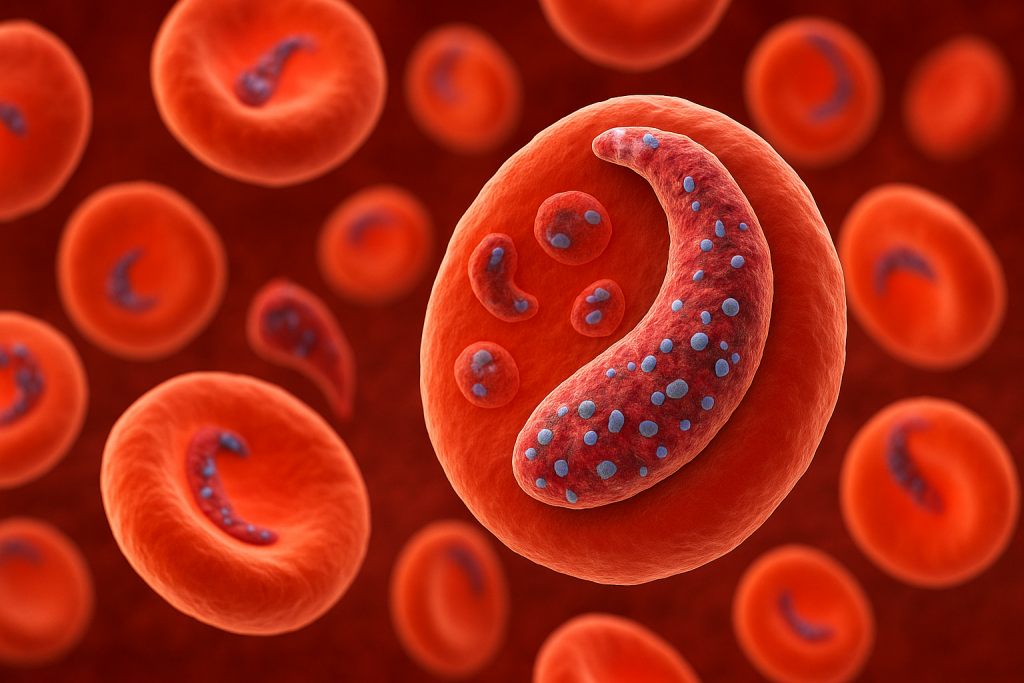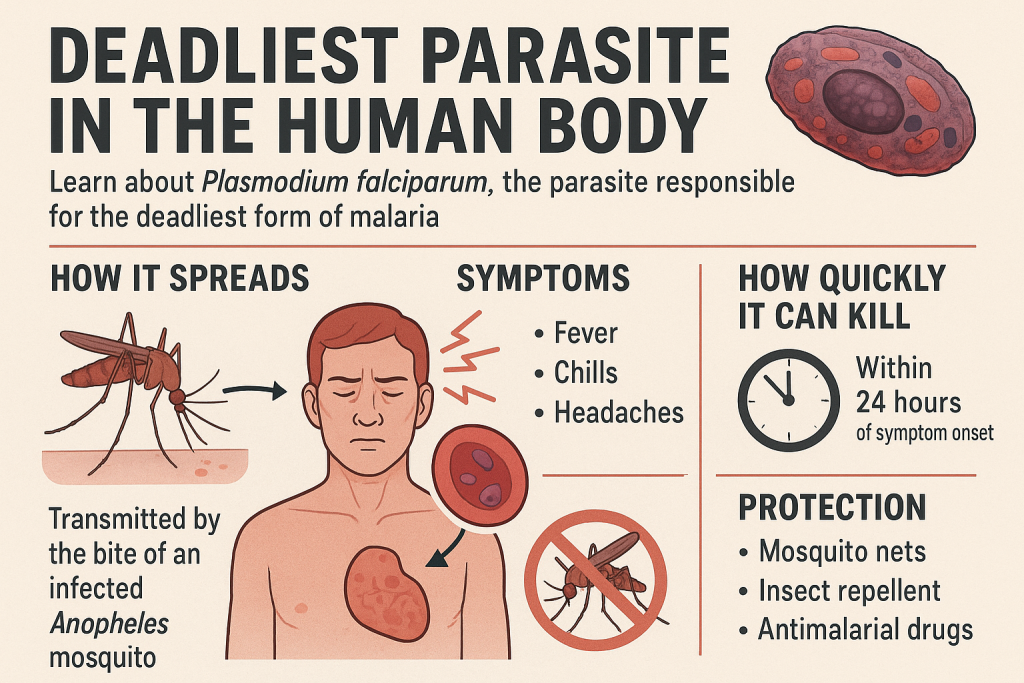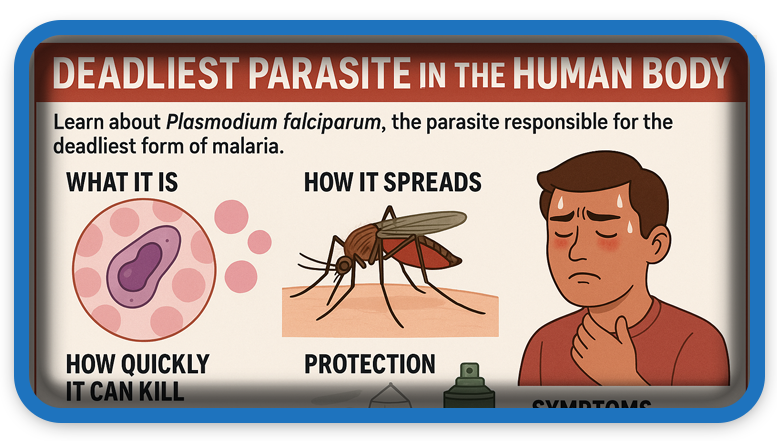⏲️ Estimated reading time: 3 min
Deadliest Parasite in the Human Body. Learn about Plasmodium falciparum, the parasite responsible for the deadliest form of malaria. Discover how it spreads, the symptoms it causes, how quickly it can kill, and the most effective ways to protect yourself from this life-threatening infection.
The Deadliest Parasite in the Human Body – Plasmodium falciparum
In the microscopic world, some organisms can cause severe illness and even death. Among them, Plasmodium falciparum, the protozoan responsible for the most severe form of malaria, stands out as the deadliest parasite for humans. Its rapid transmission, swift progression, and high mortality rate make it a global threat.
What is Plasmodium falciparum?
Plasmodium falciparum is a unicellular protozoan parasite belonging to the Plasmodium genus. It infects human red blood cells, destroying them and causing severe anemia, organ failure, and in many cases, death.
It is mainly found in sub-Saharan Africa, but also in parts of Asia and South America, particularly in tropical and subtropical climates.
How is it transmitted?
The main vector is the female Anopheles mosquito. The transmission cycle happens as follows:
- An infected mosquito bites a person, injecting the parasite into their bloodstream.
- The parasite travels to the liver, where it multiplies.
- After several days, it enters the bloodstream and infects red blood cells.
- The cycle repeats, causing massive cell destruction and the characteristic symptoms.
Symptoms of Plasmodium falciparum infection
The disease progresses rapidly, with symptoms appearing 9–14 days after infection:
- High fever, often above 40°C (104°F)
- Severe chills and heavy sweating
- Intense headaches
- Nausea and vomiting
- Severe anemia (extreme fatigue, paleness)
- Convulsions and neurological issues
- In severe cases: kidney, liver, or respiratory failure

Why is it the deadliest parasite?
- High mortality rate: Over 600,000 deaths annually, according to WHO.
- Rapid progression: Can kill within 24–48 hours if untreated.
- Drug resistance: In some regions, the parasite has developed resistance to standard treatments.
- Children are most at risk: Over 70% of victims are under 5 years old.
Major complications
If left untreated or treated too late, infection can lead to:
- Cerebral malaria – severe inflammation of the brain
- Multiple organ failure
- Coma
- Sudden death
Prevention and protection
The best way to prevent Plasmodium falciparum infection is through:
- Using insecticide-treated mosquito nets
- Applying repellents to skin and clothing
- Wearing protective clothing covering arms and legs
- Avoiding high-risk areas during rainy seasons
- Taking preventive medication (only under medical guidance for travelers)
Treatment
Treatment depends on severity and region but typically includes:
- Artemisinin and its derivatives – currently the most effective drugs
- Combination therapies to prevent drug resistance
- Hospitalization for severe cases, with close monitoring of vital functions
Other deadly parasites
While Plasmodium falciparum tops the list, several others can also be fatal:
- Naegleria fowleri – the “brain-eating amoeba”
- Echinococcus granulosus – lethal hydatid cysts
- Trypanosoma brucei – African sleeping sickness

Final advice
Knowledge is the best weapon against deadly parasites. If you live in or travel to an endemic area, mosquito protection and early recognition of symptoms can mean the difference between life and death.
📝 Article Summary
- Plasmodium falciparum causes the most severe form of malaria.
- It can kill in less than 48 hours without treatment.
- It spreads through bites from Anopheles mosquitoes.
- Prevention and rapid treatment save lives.
🔔 For more tutorials like this, consider subscribing to our blog.
📩 Do you have questions or suggestions? Leave a comment or contact us!
🏷️ Tags: Plasmodium falciparum, deadly parasites, severe malaria, tropical diseases, malaria prevention, human parasites, fatal illnesses, global health, dangerous infections, Anopheles mosquito
📢 Hashtags: #PlasmodiumFalciparum, #Malaria, #Parasites, #Health, #TropicalDiseases, #Prevention, #WHO, #Medicine, #DeadlyInfections, #Mosquito
Only logged-in users can submit reports.
Discover more from HelpZone
Subscribe to get the latest posts sent to your email.

